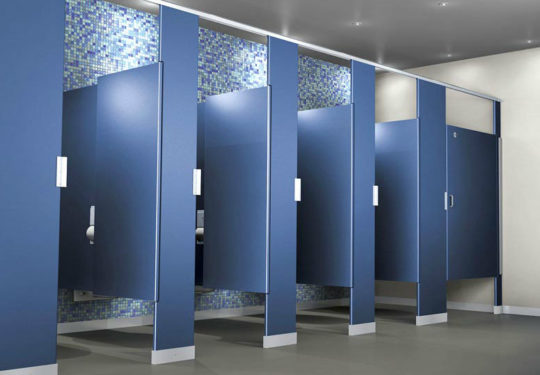By PHILLIP CEASE

Only some restrooms need apply
There’s another bathroom bill in the legislature this year, but this one only deals with stadiums.
H. 3792, which passed the House unanimously by a vote of 101-0, carves out an exemption in the building code for bathrooms in middle and high school stadiums.
In an Associated Press story this week, Rep. Anne Thayer, the bill’s primary sponsor, said that Wren High School is “literally waiting on this bill to pass [in order] to finish” a stadium renovation. The story continues, “The problem is that the building codes, adopted by the state last June, require a ‘ridiculous’ number of stadium bathrooms,” Thayer said.
The purpose of the bill is transparent. A school realized that it was going to cost an obscene amount of money to comply with the building codes, so they asked the legislature for aid. Realizing that the district was correct and that the number of fixtures required was excessive, Thayer agreed to sponsor the legislation.
However, instead of changing the building codes for everyone, the bill only changed them for some stadiums. And herein lies a classic problem with some legislation.
Take the state’s sales tax code. There are so many special interest exemptions that the state actually exempts more sales taxes than it collects. Instead of lowering the sales tax that everyone pays, only certain well-connected industries get exemptions, like (in keeping with one theme of this week’s column) portable toilets.
H. 3792 is no different than another sales tax exemption. It would be just as easy for the legislature to make the section of the building code dealing with bathrooms less burdensome to everyone, not just a certain type of stadium — yet they passed a very specific exemption.
Rep. Laurie Funderburk, one of the bill’s co-sponsors, told the AP the bill is an “effort to not build more than necessary so taxpayers are not having to spend more money.”
The bill would save the school district a lot of money, around $5,000 per toilet, or $300,000 altogether. Why then would a bill whose object is to save taxpayer money not apply also to taxpayers, private citizens, and companies?
It’s completely understandable that the school, to quote the district spokesman, “wanted relief” from this section of the building code. However, instead of ensuring that everyone received the same treatment, it only exempted middle and high schools. Everyone else will just have to keep flushing money down the toilet.
